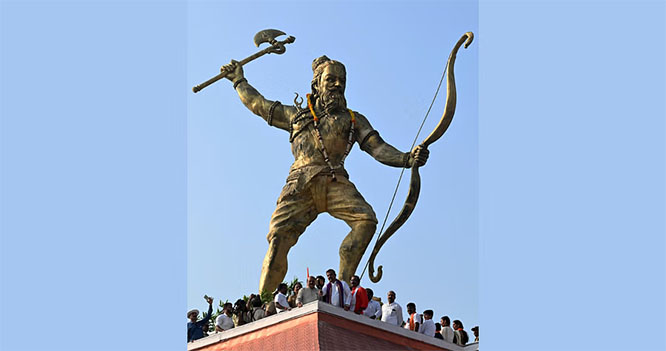
As many as 59 Palestinian journalists have been killed and dozens injured during the Israeli regime's ongoing war on the Gaza Strip, says an independent human rights advocacy group.
Euro-Mediterranean Human Rights Monitor provided the information in a press statement released through Palestinian media on Sunday.
According to the statement, the fatalities equaled "the highest-ever number of journalists killed in wars and conflicts in modern history."
The group attributed the regime's brutality towards journalists to its efforts to impose "a real and comprehensive media blackout" during the war.
The Israeli regime started the war on Gaza after the territory's Palestinian resistance groups carried out the surprise Operation al-Aqsa Storm against the occupied territories on October 7 in response to the regime’s intensified crimes against the Palestinian people.
Gaza's Health Ministry says at least 13,000 Palestinians, including more than 5,000 children, have so far been killed, and about 30,000 people have been injured.
The killing spree targeting journalists, Euro-Med Monitor said, came amid unfounded allegations by some Israeli officials that Palestinian press crews had prior knowledge of the October 7 operation.
According to the group, "Israel purposefully [has] left no safe haven for journalists in the Gaza Strip. Journalists were targeted even when they were wearing press jackets in the field, in press tents erected for media coverage next to hospitals, or even in their family homes."
The latest of the fatalities were caused on Saturday, when the regime's forces killed two journalists in an airstrike targeting Gaza's Bureij refugee camp.
The victims were identified as Sari Mansour and his colleague Hassouna Salim. They lost their lives after Mansour’s home came under an Israeli bombardment inside the camp, which is located in the central Gaza Strip.
According to Euro-Med Monitor, the Israeli war has led to complete or partial destruction of at least 117 press offices.
The regime has also restricted satellite channels operating in the Palestinian territories during the war, including Lebanon's al-Mayadeen television network, and has threatened to restrict Qatar's Al Jazeera network.
The advocacy body added that it has "received identical testimonies from [Palestinian] journalists expressing their fear that the media equipment they received from international organizations via Israel may include location-tracking and eavesdropping devices, which may have facilitated their targeting during the war."
Euro-Med Monitor asserted that targeting journalists is considered a war crime under international humanitarian law.








Comments
Add new comment